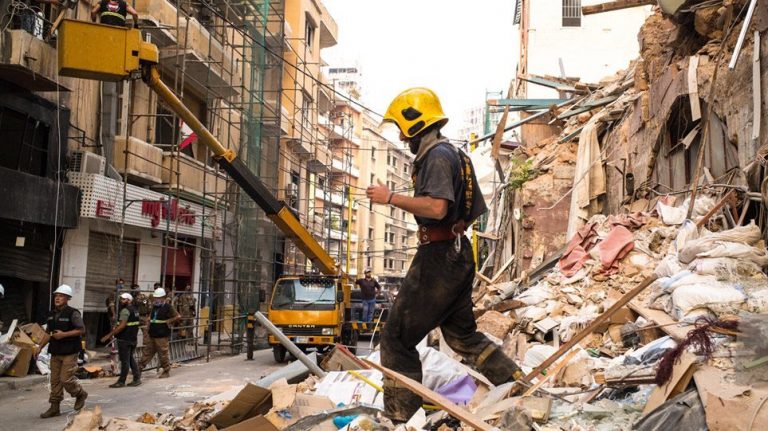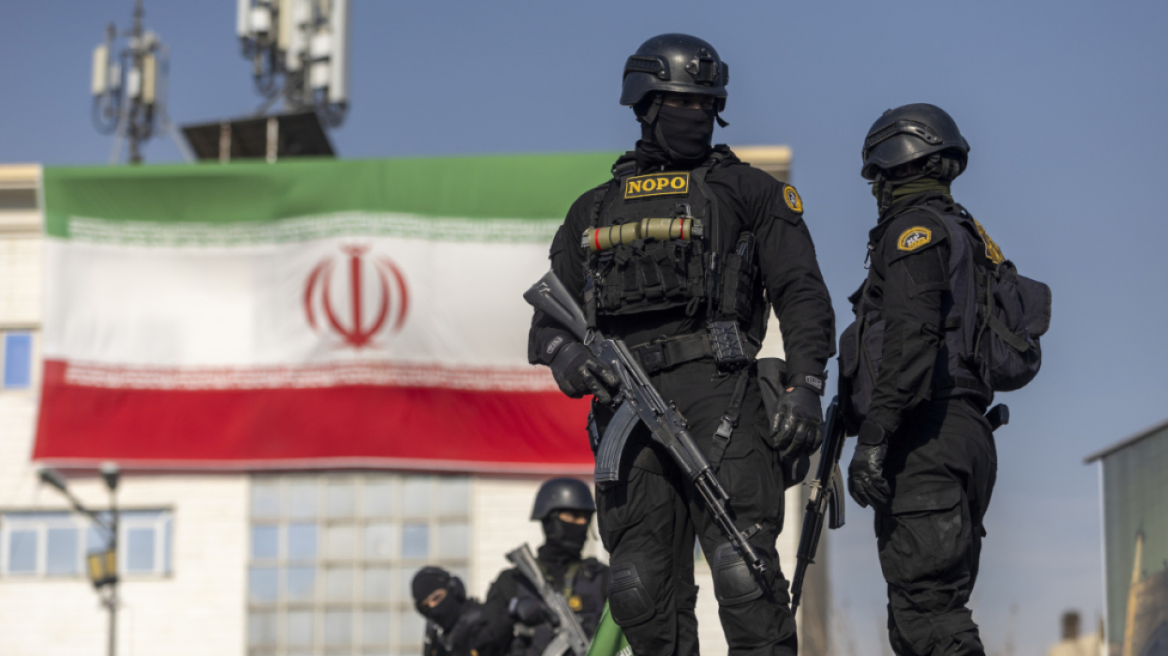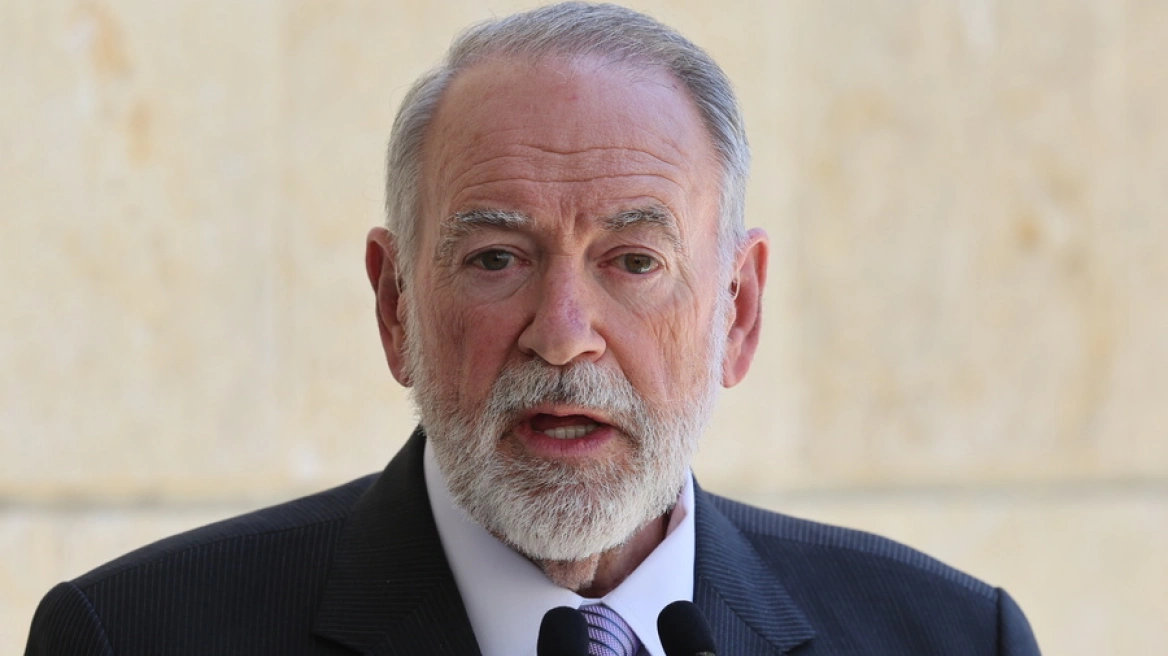Rescue workers may have found another ‘heartbeat‘ under the rubble left when an explosion rocked the Port of Beirut last month – raising fresh hopes a buried survivor might still be alive after the blast.
Search operations began on Thursday afternoon after a sniffer dog belonging to a Chilean search and rescue team detected something as the team was going through the neighbourhood of Gemmayzeh and rushed towards the rubble.
On Thursday, the team used audio detection equipment for signals or heartbeat, and detected what could be a pulse of 18 to 19 beats per minute.
In the night of September 4th, a month after the blast tore through Beirut, unconfirmed social media reports suggest the Chilean search team have now found an additional heartbeat under the debris.
‘The #ToposChile team just ran a test and breathing was confirmed. Digging into the rubble continues. Some new reports are that it may be two children-most likely flower vendors,’ Maya Yahya, the director of Carnegie Middle East, wrote on Twitter, citing a TV report from AlJadeed News.
Salman Andary, of Sky News, wrote in Arabic on Twitter that the rescue team’s sensors had detected a heartbeat again under the blast wreckage.
‘Chilean team finished the process and were able to, once again, find a person’s breath under the rubble,’ Andary said, adding that the process took 40 minutes and the ‘heartbeat’ was scanned several times.
Rescue workers continued to dig through the rubble of a Beirut building for a third day this morning.
About 50 rescue workers and volunteers, including a specialist team from Chile, had yet to locate anyone after sensors on Thursday detected the signs of breathing and heat.
They said they would continue while there was a small chance of finding a survivor, and had narrowed their search.
‘Always in search operations like this, you can neither lose hope nor absolutely say there is hope,’ George Abou Moussa, director of operations in Lebanon’s civil defence, told Reuters.
The Aug. 4 blast killed about 190 people, injured 6,000 more and devastated whole neighborhoods. The authorities held ceremonies on Friday to mark a month since the explosion tore into a city already reeling from a crippling economic crisis.
Rescue efforts dominated local and social media, as the Lebanese were transfixed, desperate for some good news.
The ruined building where the search was continuing lies between the residential districts of Gemmayze and Mar Mikhael, among the hardest hit areas by the blast and home to many old buildings that crumbled as the shockwave ripped through.
“World’s loneliest elephant” to be given new life after decades of neglect
Another Fort Hood soldier dies, days after collapsing during training
Work was slow, rescue workers said, as the badly damaged building was at risk of collapse.
‘The building is really crumbling, it’s scary and there’s a lot of danger to the team,’ Abou Moussa said.
Workers were using shovels and their hands to dig, while mechanical diggers and a crane lifted heavy debris.
Emmanuel Durand, a French civil engineer who was training local university students, volunteered his services and was working with the rescuers to monitor the structure.
Scanning the building with high-precision lasers, Durand said his team had so far not found any signs of movement.
Lebanese army finds more explosive outside Beirut port
Lebanon’s army said on Thursday it had found 4.35 tonnes of ammonium nitrate near the entrance to Beirut port, the site of a huge blast last month caused by a large stockpile of the same highly explosive chemical.
Army engineers were “dealing with it,” according to an army statement carried by the state news agency NNA. The statement said the chemicals were found outside entrance nine to the port.
The catastrophic explosion on Aug. 4 that ripped through the city killed about 190 people. The authorities said it was caused by about 2,750 tonnes of ammonium nitrate that had been stacked in unsafe conditions in a port warehouse for years.
The blast smashed entire neighbourhoods, gutting buildings and injuring 6,000 people.
Earlier on Thursday, President Michel Aoun ordered repairs to be made to old refuelling infrastructure at Beirut airport and called for an investigation into a report that thousands of litres of fuel had leaked from the system.
Beirut airport head Fadi el-Hassan told a news conference that a leak of 84,000 litres of fuel had occurred in March 2019 and repairs were completed in two months. He said international investigators had described the repairs as “satisfactory”.
News of the leak added to concerns about public safety. “No explosion is awaiting us,” Hassan told the news conference.
Sources: Daily Mail, Reuters
Ask me anything
Explore related questions





